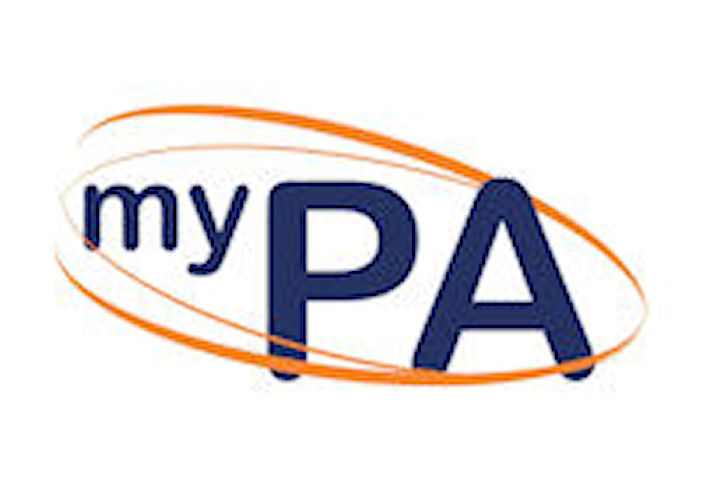
by myPABus | Jun 4, 2018 | Administrative Support, Business & Corporate, Business Training
Small Claims Fact Sheet
Small Claims Fact Sheet Objectives
- Introduction to Small Claims
- How to take Court Action
- What happens next in a Small Claims application?
- Does it cost money to take someone to Small Claims?
- Working out the interest on a Small Claims request
- You’ll have to go to court if…
- After the Hearing
1 Introduction – Small Claims
You can take court action against someone who owes you money and won’t pay. This is known as making a court claim. It can also be known as taking someone to a ‘small claims court’. You usually have to pay a court fee, and you may not win your case or get your money back.
2 How to take Court Action
The government has tried to make the process as easy as possible. The easiest way to claim it be completing the form online
https://www.gov.uk/make-money-claim-online
You can use this service to claim:
- For a fixed sum under £100,000
- Against no more than 2 people or organisations

3 What happens next in a Small Claims application?
- If they deny owing you money, you may have to go to court.
- You can get the court to order them to pay if they admit owing the money or don’t respond.
- If they still won’t pay, you’ll need to ask the court to take extra steps to collect the money – e.g. using bailiffs. This is called enforcing a judgment.
4 Does it cost money to take someone to Small Claims?
- Yes! It costs money to go to submit a small claims application.
- The fee is based on how much you are claiming + interest
- Using the Money Claim Online is cheaper than sending in the form.
| amount |
Sending the form to court centre |
Using Money Claim Online |
| Up to £300 |
£35 |
£25 |
| £300.01 to £500 |
£50 |
£35 |
| £500.01 to £1,000 |
£70 |
£60 |
| £1,000.01 to £1,500 |
£80 |
£70 |
| £1,500.01 to £3,000 |
£115 |
£105 |
| £3,000.01 to £5,000 |
£205 |
£185 |
| £5,000.01 to £10,000 |
£455 |
£410 |
£10,0
00.01 to £100,000 |
5% of the value of the claim |
4.5% of the value of the claim |
| £100,000.01 to £200,000 |
5% of the value of the claim |
You can’t claim using Money Claim Online |
| More than £200 000 |
£10 000 |
You can’t claim using Money Claim Online |
5 Working out your small claims interest
- The interest you can charge if another business is late paying for goods or a service is ‘statutory interest’ – this is 8% plus the Bank of England base rate for business to business transactions.
- You can’t claim statutory interest if there’s a different rate of interest in a contract.
After you have submitted your small claims
- The person or business who owes you money must respond to your claim within 14 days of receiving it.
- If you don’t get a response, you’ll have to ask the Court to order them to pay. You do this by continuing with the Money Claim Online form.
If you do get a response – YIPPEE!
- Tell them you are withdrawing your claim and also tell the Money Claim Online help desk.
6 You’ll have to go to court if…
- The person or business says they don’t owe you any money.
- They disagree with the amount.
- You can’t agree on how the money will be repaid.
- The court will send you a questionnaire asking for more information on the case. Fill this in and return it to the court.
This will incur additional costs.
- If your case is a small claim, under £10,000, it can be dealt with using written evidence, and not need a hearing.
If there is a hearing you can:
- Represent yourself
- Pay for a barrister or solicitor to represent you
- Ask someone to speak on your behalf, like your partner or an advice worker – you must get the court’s permission
7 After the Hearing
- You’ll receive a letter from the court, stating its decisions, and any actions you need to take.
Additional Resources
- I highly recommend using your local Citizens Advice Bureau for additional advice and support.

by myPABus | Feb 14, 2018 | Administrative Support, Business & Corporate, Office Skills
I am a great believer in having an email signature on all my emails. I am also a great believer in keeping up with modern work techniques and changes that take place. Which is why I started this blog giving PA Tips and Secretarial Support.
When I started school things changed every decade, then the age of computing arrived, and things changed every 18 months, and now, with the aid of social media, they seem to change every minute. As a consequence; I attended a training course myself to find out what changes may be occurring over the next few months in our industry.

What is an email signature for?
To my utter amazement, it seems to be with emails and email signatures. It is one of the strangest changes and I would never have thought about 12 months ago. To be fair, even last week. The standard convention has always been that when you send a business email, you add a signature. The signature tells the recipient your name, your job title, and contact details. Quite often there is a legal disclaimer. The disclaimer will state that the information provided is for the recipient only and if misdirected, please delete the email. Then, of course, there is the small advertisement about the company or a testimonial telling prospective customers or clients how good your business is. As I said, this is the standard, but each company may be different and offer different guidelines. My company abides by the above, and I have been pleased with this style of format.
Never the less, it has come to my attention that large organisations have started to remove surnames from people’s email signatures to have a generic email address. When I have called organisations and the person on the other end of the phone has given me an email address that is generic I am told that they will receive the email or that their first name is sufficient, and the message will reach them. It is not something I have given much thought to in the past.
However, it has been brought to my attention that the reason for this is that many staff (especially ladies) have found that during their working day they have given out their name, their email, and works telephone number. All useful forms of communication for a client or customer to contact them. This is where it gets interesting. Some of those people have then been stalked out of the office by the clients or customers. The client or customer has been able to locate them from the minimal amount of detail they obtained from the regular communication they had during a working relationship and then taken it one step further.
Facebook is an excellent tool for communication, as is Twitter, Instagram, Pinterest etc. However, we know there are risks associated with our personal data on these sites. For example, I have never put my birthday on social media or any reference to the day or month. I don’t put my address or house number, including photos of my home that could identify where I live. I have even found that I moderate my Facebook posts and opinions when using the various social media platforms. A form of self-restriction.
It only takes a few minutes for someone to find out those details, and you could have lost your identity or find that you are the proud owner of a new credit card that owes circa £10,000 worth of debt. It has never really occurred to me to extend some of that security to the emails I send, and the details people can glean from that.
In Conclusion, what will my email signature look like
As I said at the beginning, I had never thought about an email signature in this contex. It is fascinating when you spend a few minutes thinking about how vulnerable we have, and are becoming, digitally. So, the big question. Will I change? My email address only uses my first name, so there is no change there. What about my signature? You know, I think I may get the ladies in my office to change there’s. As the owner of a business and advising about PA Tips and Secretarial Support, I have put myself forward as the face of my company. I don’t feel I can then hide behind a title. I will, however, take a little more care about what I put in my emails and the amount of details people could glean from them.
You may also be interested in the following posts about PA Tips and Secretarial Support
Contact Details, Email Signatures
Contact Details Email signature

by myPABus | Apr 25, 2017 | Administrative Support, Business Training, CPD - Continued Professional Development, Office Skills

A Computer Firewall
What is a Firewall?
The term firewall is thrown about by those in the know about computer security, but what is it?
In the most general of terms, a firewall is a defence measure that your computer uses in an effort to protect itself from unwanted programmes and outside access to your computer. Think of it as a kind of filter that guards you against the dangers of the internet.
How does a Firewall work?
A firewall works by comparing information to a set of rules. For instance, if a website or online (more…)

by myPABus | Mar 15, 2017 | Administrative Support, CPD - Continued Professional Development, Office Skills, PA and Secretarial Training

Planning your day to be proactive
When you think of a PA or a Secretary, you immediately think of someone organised, who is ultra-efficient and has their hand on the heartbeat of the department or their Boss’s Day. In effect, being proactive. Being Proactive is management speech stating that ‘a person is creating or controlling a situation rather than just responding to it after it has happened’. (more…)

by myPABus | Feb 21, 2017 | Administrative Support, Business Training, Office Skills, PA and Secretarial Training

Have you ever wondered what your net worth is, as a human being? What your experience from birth to right now, this very moment has made you worth? It is one of those questions we can often think about, but as women never answer or avoid at all costs. There are some women will go directly to their current hourly rate, in employment. There are some who will say instantly say I am worthless and those who will tell you they are worth a million pounds. The truth could be in-between all of the above.
With that in mind, let’s do a little task. This task could take you a few minutes, hours or days (especially if you decide to do the task truthfully). Arrange to get some time on your own, without any distractions, interruptions and in a quiet place that will allow you to think freely.
Now, grab a pen and paper and write down all your qualifications, even those swimming qualifications and gymnastic badges you had as a child. Include any exams you gained from school, college and or university. Don’t forget those extracurricular activities like piano or guitar qualifications. Just write them down and do not re-read them. Once you have finished, turn the piece of paper over. Then, on a separate piece of paper add all the experiences you have had over the last few years. Include your jobs, your home and family responsibilities. These will include your personal responsibilities. Those responsibilities that you do every day without even thinking about it. For example, do you have a pet that you look after or have older parents or younger siblings that depend on you? All of these experiences create value to you as a person. Once you have finished, I would like you to put these two lists away for 24 hours. Don’t read them, don’t look at them, just put them away.
24 Hours Later
Now, I would like you to take your lists and read them.
- Read out aloud all the qualifications you have.
- Read the list of all your experiences.
Did you find anything on these lists as a surprise?
Do you have more qualifications than you expected, do you have more experience than you realised?

Money is the key or is it?
Just for fun, on your qualifications list and experience list, how much do you think it would cost to get those qualifications and that experience if you were starting from scratch. State education cost per child circa £48,000. A degree can cost up £37,000 (without accommodation and living expenses). That is £85,000 we have had spent on us already, and we have not even started on our experience!
Now ask yourself the question, ‘If you had to pay someone else, with all those skills, what would their hourly rate be?’ It could be argued that this be your net worth.
Personal Reflection on Your Net Worth
I undertook this task a few years ago, and I was surprised and a little intimidated by the person who had acquired all my skills and experiences. We take ourselves for granted so often, that sometimes we just need to stop, take a look at ourselves and congratulate us for what we have done and what we will be doing in the future.
Your net worth is not the amount you get paid. It is the amount of money you would have to pay someone to do what you do, daily.

by myPABus | Dec 14, 2016 | Administrative Support, CPD - Continued Professional Development, PA and Secretarial Training

The Appraisal Process
Depending on your company internal calendar of events and procedures the appraisal process isn’t that far away. Most appraisals start in March/April in preparation for the new financial year. For a PA,
EA and Secretary this is the time when the task of organising appraisals or preparing for appraisals starts. It is, however, worth noting that the business year begins April (often referred to as the New Financial Year), so the business year has another three months to run, (the last quarter). It is, therefore, time to start thinking about what you want to achieve in the final quarter of the financial year and what you want to achieve in the coming year.
(more…)














